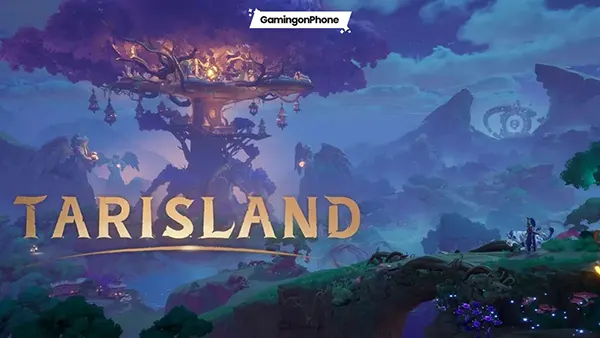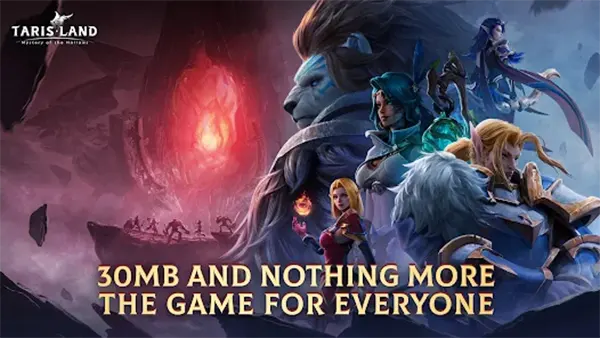
Tarisland – Tencent’s Answer to WoW and Genshin Impact in a Mobile MMO Format
As mobile MMORPGs continue to gain popularity, Tencent’s Tarisland has emerged as one of the most ambitious projects of 2025. With global release scheduled for June, Tarisland combines the expansive gameplay of World of Warcraft with the vibrant style of Genshin Impact, all optimised for mobile and PC platforms. In this article, we explore what sets Tarisland apart, from gameplay mechanics to class systems, and its potential to challenge long-established giants in the genre.
Game World, Lore, and Visual Style
Tarisland offers a meticulously crafted fantasy world, divided into distinct regions, each with its own biomes, creatures, and historical background. The developers have focused on creating a lore-rich experience, where mythology, ancient wars, and mysterious civilisations all play central roles in the unfolding story.
The game’s visual style blends Eastern fantasy with Western high-fantasy tropes, making it accessible and attractive to both Asian and Western audiences. Every environment is designed with high-definition textures and dynamic lighting, fully utilising the capabilities of current-generation smartphones and PCs.
Players will explore zones ranging from snow-covered mountains to steampunk-inspired cities. The seamless transitions between areas and weather changes help immerse players in a dynamic, evolving world that is rarely seen in mobile MMOs.
Customisation and Exploration
In addition to the expansive world map, Tarisland encourages deep customisation of player characters and exploration. Players can customise everything from body type to class-specific gear appearances, reflecting a strong personal identity in the game world.
The game features hidden quests, lore fragments, and time-limited exploration events, rewarding players for venturing off the beaten path. This adds a strong incentive for exploration beyond the main storyline and dungeons.
Mounts and pets further enhance mobility and player expression, with dozens of collectible options that vary by region and difficulty level, pushing collectors and explorers to dig deep into Tarisland’s massive world.
Classes, Raids, and Core Gameplay Mechanics
Tarisland launches with nine playable classes, each with unique specialisations and roles within party compositions. These include staples such as Warrior, Mage, Priest, as well as more original choices like Bard and Shadow Assassin. Each class can switch between two builds — one PvE-optimised, one PvP-oriented — giving players flexibility in content approach.
Combat follows a hybrid model: action-based movement combined with traditional tab-targeting, which appeals to both casual and hardcore MMORPG players. The system rewards timing and positioning while remaining mobile-friendly with intuitive controls.
Raids are a central component, featuring multi-phase boss fights with mechanics that require coordination and class synergy. Weekly challenges and tiered difficulty levels ensure that even experienced MMO veterans will find long-term progression content.
Skill Trees and Build Diversity
Each class comes with its own skill tree, allowing players to tailor their gameplay style according to preferences and group roles. This modular system ensures that even within the same class, no two builds are exactly alike.
Build experimentation is encouraged through free resets and a robust testing area where players can simulate combat scenarios. This flexibility significantly reduces the penalty for experimenting, which is uncommon in mobile RPGs.
Additionally, gear sets and enchantments introduce another layer of depth. These items can be upgraded through crafting or boss drops, with special synergy bonuses for matching sets — a system reminiscent of WoW but simplified for mobile interfaces.

Cross-Platform Integration and Monetisation Model
One of Tarisland’s key features is full cross-platform integration. Whether playing on mobile or PC, players share the same servers, progression, and guild structures. Cloud synchronisation ensures seamless play across devices without performance degradation.
Tencent has explicitly confirmed that Tarisland avoids pay-to-win mechanics. Instead, it adopts a season-pass monetisation model focused on cosmetic rewards and battle pass content, placing player skill and time investment as the core progress drivers.
This approach has been positively received during beta testing in China, Europe, and North America. Feedback indicates that players appreciate the focus on fairness and effort-based progression — a move designed to distance Tarisland from monetisation-heavy competitors.
Guilds, PvP, and Social Features
Guild systems in Tarisland are designed to foster community collaboration and competitive PvP. Guild raids, weekly objectives, and resource-sharing mechanics offer long-term goals for organised groups.
PvP includes arenas, battlegrounds, and large-scale faction wars. Balancing is ensured through matchmaking systems based on equipment level and class rank, ensuring a fair playing field.
Social features such as voice chat, in-game mail, friend systems, and even player housing contribute to a well-rounded MMO experience, keeping players engaged both solo and in groups.
